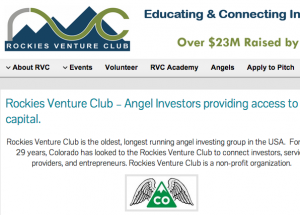

Among the three things I learned:
One. Colorado is a leader in transparency, notably with the All-Payer Claims Database movement, in which governments and government-funded nonprofits and other partnerships in the states use claims data from government and private payers to shed light on costs. Tracey Campbell, executive director of CIVHC, the database, pledged to continue to make Colorado an open marketplace. Colorado got a “C” grade for transparency in a recent study of the states — which doesn’t sound that great, unless you consider that two states got a “B” grade, three states got a “C” grade, and everybody else got an “F.”
Two. Transparency is mainstream — both cost transparency and quality transparency — and the patient-to-consumer transition is here. The keynote speaker, Tom Main, a partner at the big benefits company Oliver Wyman, knit together a description of the changes in the market — some already here, and some yet to come. His context and framework included a tour of the rise of “convenient and personalized care,” which in this instance started with a notional smartphone app helping compose an episode of care for a child with an earache: hypothetically, Mom sees via the app that Wal-Mart can see her child for $40, with a $4 prescription, and the app reveals waiting times; Rite-Aid offers a kiosk teledoc visit, for $30 with a $3 prescription and also gives waiting times; Mom can choose a phone visit with her pediatrician; or she can choose to go to the pediatrician’s office for $95, with a four-hour delay and a 45-minute waiting-room stay, plus a trip to the pharmacy to pick up a prescription. He had a range of other descriptions of marketplace changes present and future, woven together in the theme “The Patient-to-Consumer Revolution.”
Three. The Rockies Venture Club is determined to help build the area’s startup ecosystem into one of the most vibrant in the United States. It’s the oldest venture club in the country, according to the executive director of the venture club, Peter Adams, who was my host. Founded in 1985, the club has more than 100 events every year, ranging from conferences like the one I went to (and its Cannabis Conference, founded last year, for those interested in investing in marijuana) and an active investor community, with established pathways for funding startups and more mature companies. “Our mission is to advance economic development in the Rocky Mountain Region by actively connecting investors with the most promising entrepreneurial companies,” the club’s literature says, with education, conferences, training for both investors and entrepreneurs, events and other community-building work. Also! Adams is author of “Venture Capital for Dummies.”
Our panel on consumer transparency
Adams and my acquaintance Leonard Kish, co-founder of the digital health strategy agency VivaPhi, invited me to speak on a panel: “Transparent Consumer Markets: Where consumers have transparent access to information and make informed decisions about healthcare options.”
Kish is well known as the person who called patient engagement “the blockbuster drug” of medicine, and as moderator, he composed a panel including me; Carm Huntress, CEO of RxRevu, which helps patients, payers and providers with an prescription optimization platform; Proteus Duxbury, the chief technical officer of the Colorado health insurance exchange; and Michael Dermer, senior vice president of Welltok, which acquired his incentives startup, IncentOne, to build on its social engagement and incentives program.
Kish started by talking about George Akerlof’s famous paper about “The Market for Lemons: Quality Uncertainty and the Market Mechanism,” which discusses information asymmetry — the state when the seller knows more about a product than the buyer, when the seller knows more about a product than the buyer.
Duxbury noted the successes of the Colorado exchange, and said Colorado intends to continue to be a leader in presenting consumer-friendly options for managing Coloradans’ health, with an eye on helping them maintain their wealth. Dermer said incentives will continue to provide reasons for smart behavior by consumers, and Huntress talked about RxReview’s work to deliver cost and effectiveness information to patients and providers at the point when treatment decisions are being made. I talked about PriceCheck, our crowdsourcing project creating a community-generated database of prices for health-care procedures with our partners KQED public radio in San Francisco and KPCC public radio in Los Angeles, with funding from the John S. and James L. Knight Foundation.
Other panels: “Smart Care Teams: Providing personalized healthcare using big data and connecting across all areas of the healthcare ecosystem” and “Wearables and Digital Healthcare. How are wearable technologies and the ‘quantified self’ changing the face of digital healthcare? Are we ready to be monitored 24×7? Which of these devices will be categorized as medical (and thus require FDA approval) and which will take the consumer route for fitness, health and overall monitoring?”
Another part of the conference Thursday included pitches for investment by several companies. Rockies Venture advises the companies on how to make pitches, connect with investors and describe the opportunities in clear terms. The pitches were polished and smooth. On Friday, the investors met to discuss possible investments.
Disclosure: Rockies Venture paid me $500 to cover my expenses.